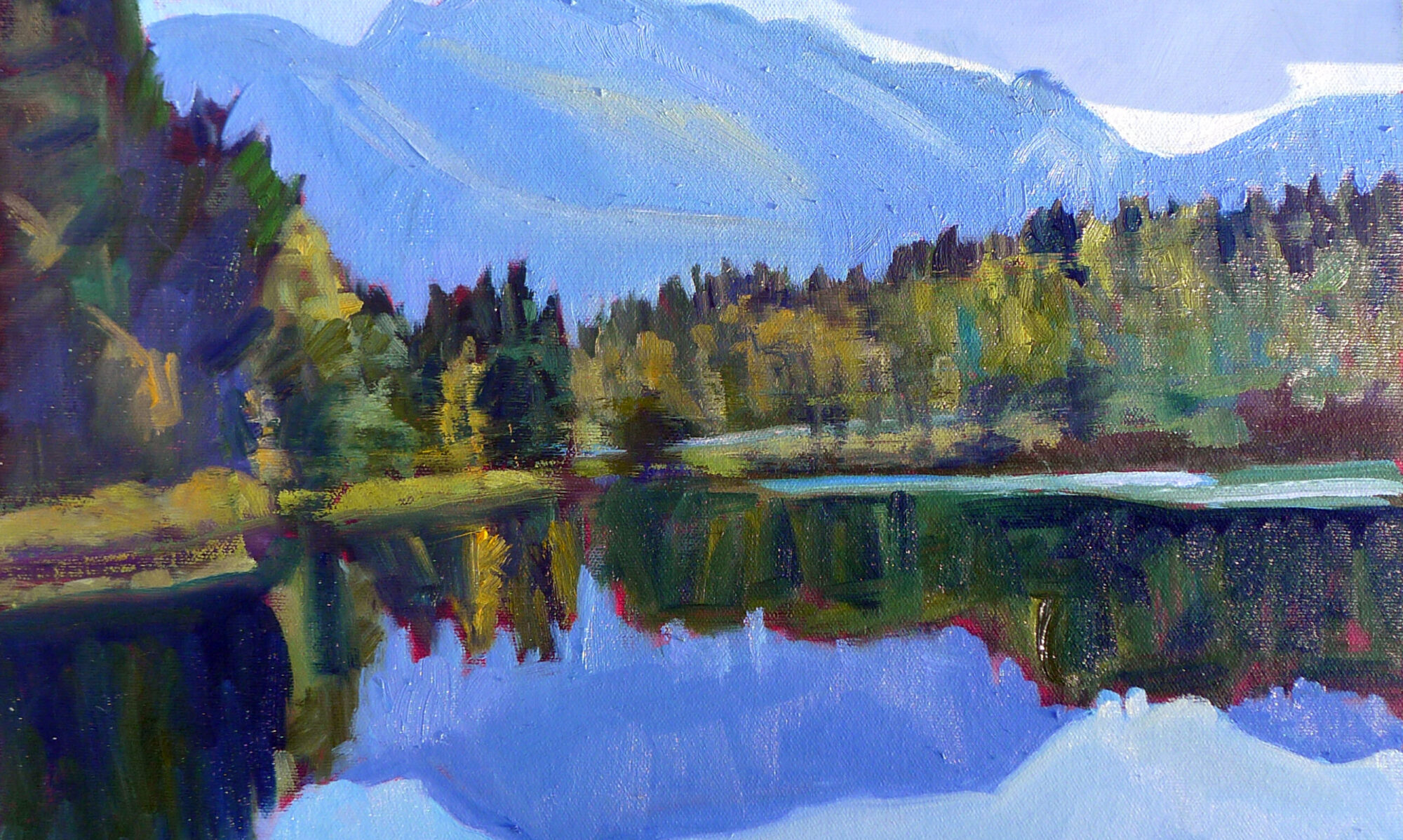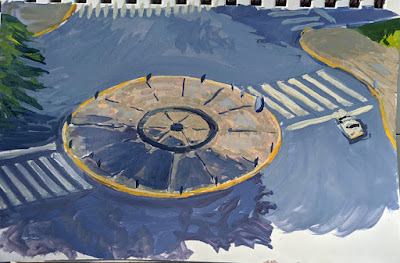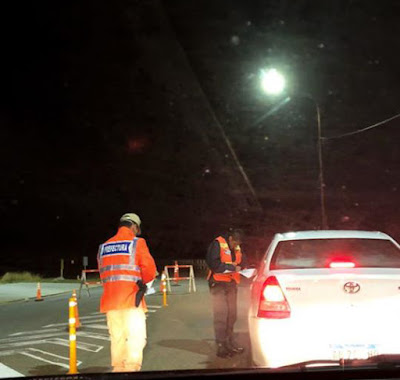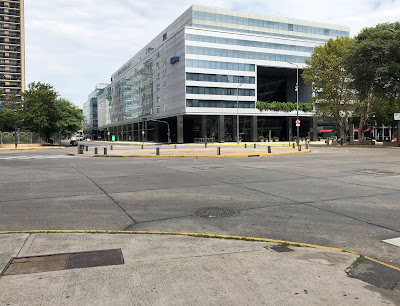The post-COVID world is uncharted territory. Navigating it successfully will require local knowledge and lots of common sense.
| Blueberry Barrens, 24X36, oil on canvas, Carol L. Douglas |
Easter Sunday was the anniversary of my arrival back from our ill-starred trip to Argentina. I left one America and returned to another. It was a nation largely without toilet paper. A year later, the phrase ‘flatten the curve’ is mostly forgotten. We still don’t know how we’re going to reintegrate our society, but the possibility seems to be there.
My mother was a fan of investment guru Peter Lynch He was famous for the phrase, “invest in what you know.” Lynch believed in the street-smarts of Average Joe. He thought individual investors were potentially more capable stock-pickers than fund managers, because they could see the impact of new products on their day-to-day lives. (On the other hand, he famously bought Dunkin’ Donuts stock because he liked their coffee, so he wasn’t always right.)
 |
| Bridle path, 11X14, oil on canvasboard, Carol L. Douglas |
Any small gallery or artist in business after a year of COVID is navigating uncharted waters. Our local knowledge and our street smarts are going to stand us in good stead, if we listen to that inner voice called ‘common sense.’
I started teaching virtually on April 28 with the coaching and encouragement of my friend Mary Byrom. The following month, I bought an annual subscription to Zoom. It’s had a tremendous return on investment. For most of the past year, my two classes have been waitlist-only.
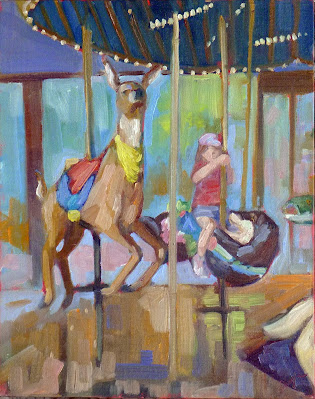 |
| Best buds, 11X14, oil on canvasboard, available. |
Lynch’s worldview was, in fact, borne out in a small way in this tiny niche business. Long before the big art publishers realized the market for virtual learning, teachers like Mary and me were teaching on Zoom.
As I approach the one-year anniversary of my virtual classes, I’m seeing a slight softening of demand. My street smarts are tingling again.
- Is this the beginning of a return to normal, where we take classes in real life?
- Have bigger vendors vacuumed up the demand for virtual instruction?
- Does the approach of good weather mean people would rather paint outside?
By the way, there are two openings in Monday night’s session starting next week. If you’re interested there’s more information here.
